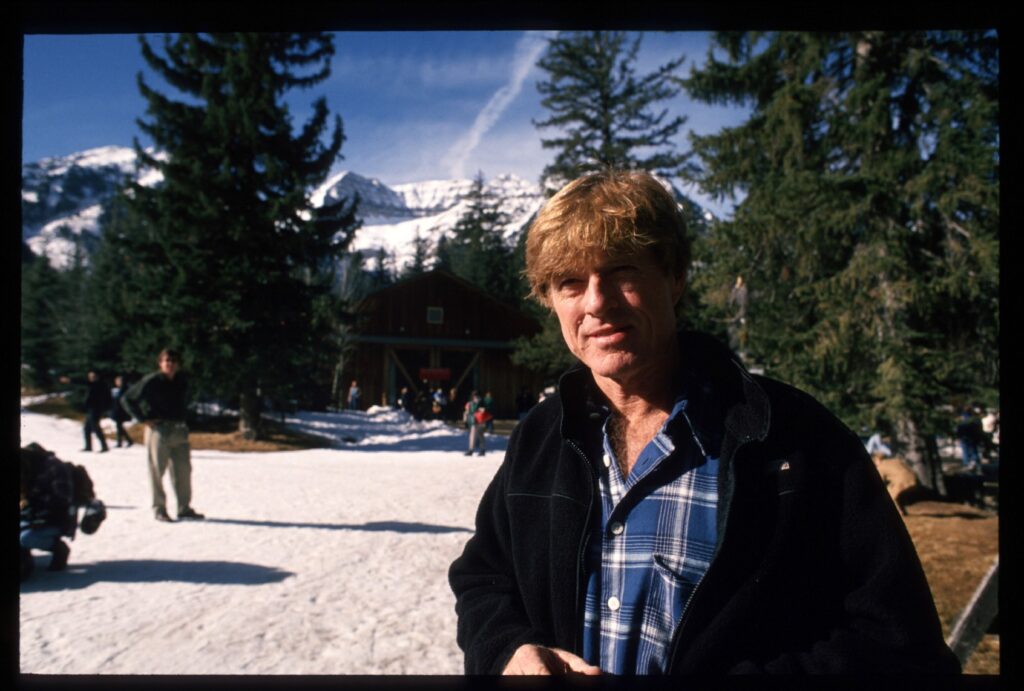
The film community is mourning the loss of actor and director Robert Redford, who passed away at his home in Utah’s Wasatch Mountains. His death comes at a poignant time as the Sundance Film Festival, which he co-founded, prepares for its final event in Park City, Utah, before relocating to Boulder, Colorado, in January 2027. The festival, a significant platform for independent filmmakers, has shaped the landscape of cinema since its inception in 1978.
Originally known as the US/Utah Film Festival, Sundance gained prominence under the guidance of Redford when the Sundance Institute took over in 1985. This non-profit organization has been pivotal in supporting emerging artists and fostering a diverse filmmaking environment. Redford’s vision was clear: to create an incubator for talent that existed outside the traditional Hollywood studio system. His commitment to independent cinema has made Sundance a major player in the festival circuit, rivaling the likes of the Cannes Film Festival and the Venice International Film Festival.
Redford could have comfortably rested on his accolades following an Oscar win for best director in 1981 for his film “Ordinary People.” Instead, he chose to focus on elevating independent cinema. His determination to create a space for underrepresented voices in film proved essential in a landscape often dominated by commercial interests. “The narrowing of the main part of the industry opens up the other part, which is diversity, which is what independent filmmaking is all about,” he once expressed, as noted in Emanuel Levy’s book, “Cinema of Outsiders.”
The impact of the Sundance Film Festival has been profound. It has elevated the careers of filmmakers such as Steven Soderbergh, who gained early recognition for “Sex, Lies and Videotape,” and Quentin Tarantino, whose work has defined independent cinema. The festival serves as a launchpad for breakout hits like “Napoleon Dynamite” and “The Blair Witch Project,” attracting filmmakers, critics, and audiences alike to Park City every January. Over the years, it has transformed into America’s most celebrated film festival, providing a platform for voices that might otherwise go unheard.
As the festival prepares for its last event in Park City, it reflects a bittersweet moment in cinema history. The event not only signifies the festival’s transition but also Redford’s enduring legacy. He championed a vision that allowed writers and filmmakers to share their stories, thereby enriching the cinematic landscape.
Redford’s influence extended beyond film production; he also prioritized diversity and inclusion within the industry. Sundance’s “Press Inclusion Initiative” has opened doors for emerging BIPOC, women, and queer critics, underscoring Redford’s commitment to fostering a more equitable space in film journalism. This initiative has provided invaluable opportunities in an industry where access can be limited.
As the film world moves forward, the spirit of the Sundance Film Festival remains a testament to Redford’s philosophy of creativity and inclusivity. His efforts have not only reshaped independent cinema but have also created a community where diverse narratives can thrive.
The festival’s relocation to Boulder represents both a new chapter and a continuation of its mission to support independent filmmakers. Even as Sundance transitions, the ethos that Redford instilled in the organization will continue to resonate, reminding future generations of the power of storytelling and the importance of giving voices to those often overlooked in mainstream cinema.
Redford’s contributions to film and culture are indelible, and his legacy will undoubtedly influence the industry for years to come.







